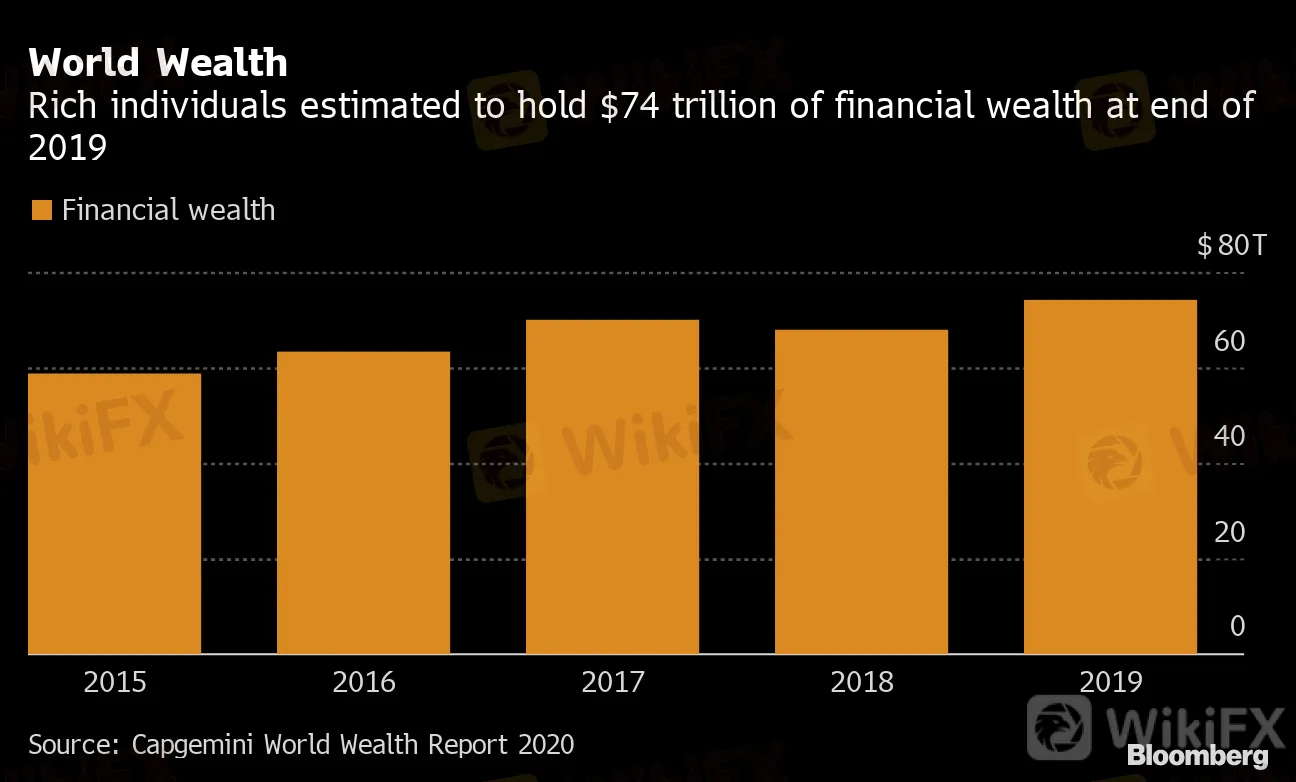简体中文
繁體中文
English
Pусский
日本語
ภาษาไทย
Tiếng Việt
Bahasa Indonesia
Español
हिन्दी
Filippiiniläinen
Français
Deutsch
Português
Türkçe
한국어
العربية
Worlds Rich Question Fees With Wealth Hitting $74 Trillion
Abstract:Even before this year‘s market crash, the wealth-management industry’s richest clients were frustrated about fees.
Even before this year‘s market crash, the wealth-management industry’s richest clients were frustrated about fees.
A third of those with more than $1 million of investable assets were uncomfortable with them in 2019, according to Capgemini SE‘s World Wealth Report 2020. Discomfort will likely rise in today’s volatile markets. The survey of more than 2,500 individuals found that about one-in-five plans to switch their primary wealth management firm in the next year, with high fees the top reason.
Their main concerns were about transparency, performance and value received. They also said they preferred fee structures to be performance- and service-based instead of asset-based.
It‘s the latest sign of the pressure the industry is under as clients balk at costs and digital competitors emerge. The majority of investors weren’t satisfied by the quality of personalized information they receive and about three-quarters of those surveyed said they would consider offerings from non-traditional providers like the big tech firms.
The discontent comes even as the rich get richer: The report estimates that the net worth of wealthy individuals climbed to $74 trillion at the end of 2019, up 8.7% from 2018 and $46 trillion in December 2012. The population of millionaires reached almost 20 million, including 183,400 with a net worth above $30 million, versus 18 million in 2018 and just 12 million in 2012.
World Wealth
Rich individuals estimated to hold $74 trillion of financial wealth at end of 2019
Source: Capgemini World Wealth Report 2020

For the first time since 2012, the Asia-Pacific region didnt lead wealth growth last year -- it was North America. The U.S. alone had 5.9 million millionaires at the end of 2019, up from 5.3 million in 2018 and more than any other country. Japan followed, with 3.4 million millionaires, followed by Germany, China and France.
The wealthy favored equities in the first two months of 2020. They allocated 30% of their assets to stocks, compared with 17% to fixed income, 15% to real estate, 13% to alternative investments and 25% in cash.
The survey did flag some promising growth areas for wealth managers. Those under 40 were far more likely to be willing to pay for value-added services such as real estate investment advice and tax planning. Sustainable investing is another bright spot, especially for the richest investors. More than three-quarters of wealth management firms have products for sustainable investing, the report said.
— With assistance by Yoojung Lee
(Updates with data on sustainable investing in final paragraph)
Disclaimer:
The views in this article only represent the author's personal views, and do not constitute investment advice on this platform. This platform does not guarantee the accuracy, completeness and timeliness of the information in the article, and will not be liable for any loss caused by the use of or reliance on the information in the article.
WikiFX Broker
Latest News
Will Gold Prices Continue to Rise Due to Trump’s Tariffs?
Miami Firm Owner Pleads Guilty to $6M Ponzi Scheme Fraud
eToro Files for IPO with $5 Billion Valuation on NASDAQ
NBI Cebu Arrests Forex Trader for Illegal Investment Solicitation
PU Prime's "Feather Your Trades" Contest! Begin
Is FizmoFX a Scam? Fraud and Account Suspension of Traders
Why the Federal Reserve Is So Important
Boerse Stuttgart Digital Secures EU-Wide MiCAR Crypto License
BOJ to Announce Policy Decision This Week, Market Bets on a Rate Hike
Crypto.com’s Dual Front Battle: European Progress and U.S. Regulation
Currency Calculator






